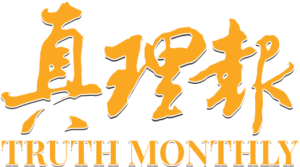Wayne Kwok
VCCSTM/Engage Beyond 英文事工牧者
How has your church life been this past year?
For most of us, it is anything but ideal. Asking this question might even seem like an oxymoron given the circumstance of the pandemic. At the time of writing this article, I had just received my first shot of the COVID vaccine, anxiously awaiting the eventual lifting of the social distancing protocols from the government and for life to return to some form of normality. But the old normal is not what we will see in the post-pandemic world. Much like how 9/11 marked a change in human history, COVID-19 has brought about a new trajectory. In the midst of all the changes and adaptations, the Church is forced to ask one of the most fundamental questions: what is Church?

For some, the church has become synonymous with Zoom. For others, worship has transformed into a mere video clip you watch at your leisure. Without a doubt, the digital platform has enabled the church to continue to provide sustenance to their congregation in the midst of heightened limitations and empowered the church to reach beyond our physical limitations. Nevertheless, most of us also acknowledge the dissatisfaction that has been growing deep inside us to seek more than just faces on a screen. We long for the physical connection. We desire a deeper level of human connectedness beyond just seeing and talking with each other through a screen.
This is exactly the pushback theologians such as Craig Gay has been promoting long before the rise of the pandemic. As we converse on the benefits and potential of the digital church, I am reminded again of this pushback. From a sociological angle, Dr. Gay has attempted to dissect the impacts technology has brought upon human society1. In simplified terms, borrowing the terms defined by Romano Guardini where he distinguishes technology as tools, contrivances, or machines, Dr. Gay argues we must also consciously and deliberately identify modern technology as to how we want it to be without being consumed by its blinding ability. Undeniably, technology can help us to become more of ourselves. Writing, as Dr. Gay points out, is one of the single greatest tools that has helped shape and nurtures the human mind. Nevertheless, it is also true that technology can also diminish us. Often this diminishment is inadvertent and unintentional. Some of today’s technology is distancing us from each other and that’s a problem.

Human connectedness is the keyword. As Christian, Christ’s incarnation is our grounding. As Christ ‘became flesh and dwelt among us’ (John 1:14), we are reminded of our nature, designed and imaged after our Creator to exhibit His likeness as embodied connected beings — both our human-to-human connection and human-to-creation connection. We, as practical theologians, must seek the wisdom to identify the technology that can be used to draw closer this connection and to stand against those that tear away. Nevertheless, this division grows blurrier as perception and understanding of reality alter with each generation, exactly the reason why this conversation must continue.
- Craig M. Gay. Christians in a Technological Age with Craig Gay. Regent College Podcast. https://www.regent-college.edu/lifelong-learning/podcast/christians-in-a-technological-age-with-craig-gay


